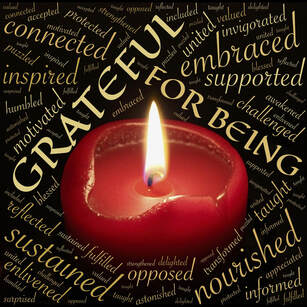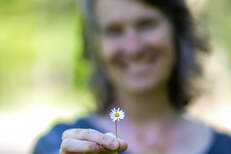
I got wondering about what these terms, which are often used interchangeably, really mean. What they are, what they aren't, why they're important,… not just for moms of teens or teens themselves, but how they can enhance anyone's life.
For starters, these practices have enriched my life in many, many ways. They have also supported me through the hardest years of my life which began 12 years ago when we were first faced with my son's substance use disorder. The years since then have been marked by deep uncertainty, intense fear, anger, grief, pain, and continual chaos. These practices have helped me to find my center, some sense of grounding, accept the life that is here, work toward cultivating a heart that can hold it all, and they continue to support me to be with uncertainty (which is what we are all discovering life is).
Meditation and mindfulness both invite us into the present moment – they ask us to be with things as they are, to face this reality and ride the waves. Through the practice of meditation, our awareness increases – we gain insights, new understandings and we can detect patterns in ourselves. Our heart opens and we begin to feel everything more. You can't force it. You practice and discover for yourself.
What are Meditation and Mindfulness?
Meditation and mindfulness are interrelated, but they are not the same thing.
Mindfulness is a QUALITY, a way of being, and it can be practiced formally or informally.
Jon Kabat-Zinn, the founder of MBSR (mindfulness-based stress reduction), defines mindfulness as “the awareness that arises through paying attention, on purpose, in the present moment, non-judgmentally.”
Let's break that down into its 4 components:
1. Paying attention on purpose (choosing where you are placing your attention)
2. Being in the present moment (right here, right now!)
3. Coming from a place of non-judgment (oof! That's a tricky one! This asks us to witness what's here, without labeling it as "good" or "bad" which we all do all the time!)
4. Showing up with gentleness and compassion and curiosity (he didn't say that but I've found this to be key)
So, mindfulness is presence with awareness. If we contrast that with mindlessness, it becomes a little more clear. Think of driving somewhere and having no idea how you got there; talking with someone but you weren't really hearing what they said. When we are mindless, our mind is somewhere else – perhaps caught up in future planning, past fretting, or worrying. When we are mindful we are fully in the present - our mind and body are in the same room at the same time!
Meditation, on the other hand, is a PRACTICE that has been around for thousands of years . It is one path to mindful living.
Meditation is the practice of taking your attention off of your thoughts (which are always commenting, judging, assessing) and placing it on something else (like a sound, a sensation, a mantra or word, or simply on the feelin of breath moving in and out of your body). As I have learned and experienced in my Shamata Vipashyana practice, we will be distracted. Our mind will think thoughts. Our ears will hear sounds. Our eyes will see things. None of this is a problem. We learn to simply return again and again (which is how this becomes a beautifully transferable skill to everyday life).
Breaking Down Some Common Myths about Meditation and Mindfulness:
1. Meditation and mindfulness are not religious – they can work with or complement any faith or spiritual practice.
2. Meditation is not complex or only for certain people. It can be done by anyone anywhere and doesn’t require fancy equipment, the right music, candle, clothes, or location. While it's nice to get away to meditate at times, this isn’t about becoming a monk in a cave on a mountaintop somewhere!
3. You do not have to stop thinking or "quiet your mind." You work with the mind as it is, which will be different from practice to practice and day to day. The mind exists to make thoughts just as the eyes see and the ears hear – it's not reasonable to expect that to stop just because you decided to meditate. And, it's not a problem. You simply notice the thoughts, let them go and return to the breath (or whatever your anchor is) and begin again! Sweet!! You can begin again as many times as you need to! Each time you notice your thoughts have carried you away is a moment of awareness, of awakening. Excellent!
4. You do not have to think peaceful happy thoughts or be in a state of bliss – we work with what’s here and that is not always bliss!
5. Meditation will not necessarily make you more peaceful or make you feel better. It might, but what I have found is that it helps you to “feel better" and that means all the feels! A practice of peaceful abiding does not mean you will always feel peaceful, though you will find a way to be with things as they are and have the courage to ride the waves of this life. Deep down there is peace in that. Meditation is about acceptance and not being at war with reality.
6. Meditation is not hard or fancy – it’s actually very simple, very ordinary, (sometimes it will even feel very boring). Yet I have found it to be very potent in its simplicity. Body has to be here – it is! Have to breathe – you are. Need to be present – you are!
7. The purpose of meditation is not to be good at meditation – it’s to be good at life! To be able to be and work with what is… through meditation, as my teacher, Susan Piver, said, "You actually get to be IN your life...not in your thoughts ABOUT your life!"
Why are Meditation and Mindfulness Important?
As I have mentioned, these practices have really enriched my life - deepening my connection to inner wisdom and guidance, opening my mind to fresh ideas, perspectives, and possibilities. They have also supported me through really hard times.
These practices:
- Help you to be more mindful, more aware, more present to the reality that is here. They support you, ground you, and nourish you as you face this reality and ride the waves. (Pandemic, anyone?)
- Increase self-awareness and help you to discover the nature of your mind.
- Allow us to separate from our thoughts – we learn that they don’t have to carry us away with them and they're not always true. Therefore, we may give our stories less weight.
- May change the way you are in the world - over time the way you think, talk, and interact with others may shift radically from your old norm.
- May change who you are. I have found that they have lead me to be more compassionate, more open-hearted, more confident, more grounded. They provide a path to claiming the power to be who you really are.
- Soften you toward yourself and others. All of this is grounded in gentleness which deepens compassion, self-compassion, and strengthens relationships.
- May lead you to feel more, cry more, and to feel more deeply connected to others and to all beings.
- Support you to actually be IN your life, not in your thoughts about life.
- Open you to be more responsive and less reactive. When you can pause and respond in a mindful way, you are to choose and work toward change based on where you are right now. You meet yourself and one another in a way that is honoring of where each of you are.
- Can interrupt our “spin cycles” – the thoughts that we each have constantly running, (catastrophizing, worrying). Mindfulness and meditation can interrupt these patterns, rewire the brain, and create new neural pathways! How amazing is that!?
- Support us to become less judgmental and more accepting. We adapt to the truth that “it’s just like this right now” and we remember that whatever "it" is, it’s impermanent. We show up to life and ourselves with more curiosity, kindness, compassion
How to Integrate Meditation and Mindfulness into Daily Life:
- Begin by becoming aware of your thoughts and stories, and get curious. Are they serving me? If not, choose to pay attention to something else – be deliberate with where you are placing your attention. Also be deliberate in what you are allowing into your mind and being.
- Reflect on gratitude – begin noticing what you appreciate, things and people you might otherwise take for granted. Beginning or ending your day thinking about what you're grateful for can radically shift your experience of life. Begin to ask yourself , "What’s going right?" to help break free from our very natural tendency to focus on what's going wrong.
- PAUSE – simply allow yourself a few breaths or moments to stop before responding to a demand or request or before rushing into what's next. Take just a little time to give yourself a little space throughout your day and notice how things shift.
- Sit with your breath, feeling it moving in and out, even if you only have 1 minute. This is meditation. Consistency is more important than duration. It's better to build a practice of one minute/day than to sit once a week for 60 minutes.
- Choose to begin your day intentionally - rather than reaching for your phone, take a moment to stretch, reflect on your gratitude, pray or meditate, drink some water, choose a quality to support you in your day. It can make all the difference in how you move through the following hours and interactions.
- Explore different types of meditation – see what works for or resonates with you. Give yourself permission to find what is doable in the reality of your life (What you have time for? What feels nourishing and supportive?). Allow it to support you rather than be one more thing to do!
- To practice mindfulness informally, engage in everyday activities with the intention of being mindful. This involves slowing down, paying attention, suspending judgment, and fully engaging in whatever experience is happening in the present moment. Put away devices of distraction - look around, use all of your senses to take in this moment; sit with another person and really listen to them; stare up at the stars; breathe in the fresh air. Opportunities for mindful presence are everywhere!
The practice of meditation (in which we forget, remember, come back, & begin again) is a practice we can bring into everyday life.
I'd love to hear your thoughts on meditation and mindfulness! What questions do you have? What have been your experiences with them in your own life? Please share in the comments below!




 RSS Feed
RSS Feed